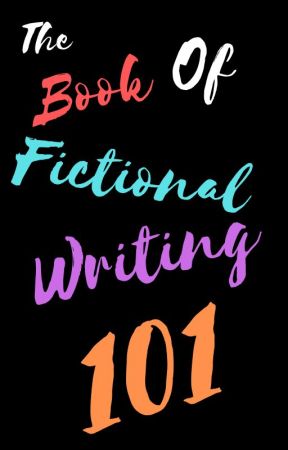It should be noted that the inclusion of these archetypes is not a bad thing. They are simply an attempt to categorize key characters across cultures, and as such some characters can fit into more than one category.
Hero/Heroine: Your basic hero, paragon of virtue. Ex: Theseus, Gilgamesh, (see chosen one)
Lover/Companion: Befriends and/or helps the protagonist, may possess unusual characteristics. Ex: Horatio, Enkidu, Jaisker/Dandelion,
Jester: Often the comic relief character, but not always. Ex: Mercutio, Mad Hatter, Jaisker/Dandelion.
Mentor/Sage: Someone who tutors another character to prepare them for the final confrontation, whether it's intentional or not. They act as a guiding figure. Ex: Obi wan, Yoda, Chiron.
Outsider: A character who is always on the outside of society, and thus has the benefit of observing it's flaws. Ex: Ponyboy and Johnny from The Outsiders, Michael (Stranger in a Strange land), Geralt of Rivia, Yennifer, etc.
Maverick: These are the rebellious characters, those reckless mavericks who don't play by societies rules. Whom or what they are rebelling against varies; sometimes its ethics, sometimes society, sometimes a hierarchy etc. Ex: Lucifer, the protagonist of every YA Dystopian novel, Sun Wukong (Journey to the West).
The Innocent: A character representing, or symbolic of, innocence Ex: Sonya from Crime and Punishment
The Explorer: Someone who yearns to explore virgin territory, Ex: Lewis and Clark, Hiccup from the How to train your Dragon trilogy, especially the second film.
The Ruler: Seeks to prevent chaos by taking control, sometimes by any means necessary. Ex: Claudius, Oedipus, Julius Caesar, Cleopatra.
Villain: Often the main antagonist, but not always. Grendel, for example, is the villain of both Beowulf and his titular novel, the latter of which is told from his point of view.
Genius: Those brilliant scientists whose hubris is there downfall. This one is common in a LOT of modern media, and is one of the easiest archetypes to justify. All the writer has too do is have the character spew some nonsense that sounds vaguely intelligent and then have them come up with a solution or a robot or a cure for the disease or whathaveyou, and boom, there's your genius. For a nice subversion of this trope, check out Accelerator from Tarou majustu no index. Ex: Victor Frankenstein, Jekyll (and arguable Hyde as well), Daedalus, Doctor Robotic, Reed (Criminal Minds), L (Death Note), Van Hellsing, Shuan Hastings (Assassin's Creed)
Caretaker/Mother: Motivated by compassion to help and protect others, Ex: Accelerator (Toaru Majustsu no Index), the Terminator in Terminator 2.
Creator: While most mythologies often have a larger god who builds the earth and shapes humanity, the creator archtype instead refers to those imaginative people who enjoy making their ideas tagental, like Leonardo Da Vinci.
Shaper: The figures in folklore who shape the world and make humanity. Ex: God, Gaia, Prometheus, Odin,
Average citizen: Just your ordinary, bland as bread, run of the mill guy or gal. Ex: Desmond Miles from Assassin's Creed, Dorthy (The Wizard of Oz), Emmett from "The Lego Movie", Shadow (American Gods)
Paragon: You know the type, helping those in need, even at the cost of themselves. Ex: Robin Hood, Superman, Jesus
Trickster: The crafty one, the schemer. Sometimes the antagonist, sometimes not. One of the most popular archetypes. Ex: Odysseus, Loki, Odin, Hermes, Sun Wukong, Aesop's foxes, Coyotes, sometimes rabbits, etc.
The Coward: The antithesis of the Hero archetype; where the Hero/Heroine can stand up for him or herself, the Coward lacks the spine to do so. They are also sometimes narcissistic, greedy, gluttonous, petty, and cruel. Ex: (Journey to the West))
The Rightful Heir: Again, another common trope, especially in Fantasy and mythology. Ex: Kronos (and subsequently, Zeus and the rest of his posse), King Arthur, Ciri (The Witcher), Hamlet, Princess Zelda. (See the chosen one)
The Chosen One: Foretold by a prophecy yadayadayada; possibly the most common archetype out there. As such, a lot of media exists that analyzes or contradicts this trope. Ex: Harry Potter, King Arthur, Luke and Anakin Skywalker, Frodo, John Connor (Terminator), Jesus Christ, Noah, Tripitaka (Journey to the West), the Dragonborne (Skyrim), Alex Mercer and PARIAH (Prototype), Katniss Everdeen, Bilbo Baggins, John Snow, Link (Legend of Zelda), Sam and Dean (Supernatural) and almost every main character in every YA Fantasy novel ever.
The Messenger: The herald, barer of news. Ex: the archangel Gabriel, Hermes, Iris, and prophets.
Prostitute with heart of gold: Usually represents irony, that is, a woman who commits "sordid acts" and thus is allegedly evil, who demonstrates virtues absent in traditional representations of the role. What many authors seem to miss however, is that women would not have to sell their bodies if there were no one to buy it. Ex: Sonya (Crime and Punishment), Lucy (Jekyll and Hyde: the musical), Shamhet (The Epic of Gilgamesh)
Femme Fatale: An attractive, lecherous woman who ultimately will prove to be the fall of the hero should he get himself involved with her. Popularized by Noir films of the 1940s, original femme fatale characters were in it for the money alone, using the flawed hero as tool to get what they want. It's every man's nightmare: Sexy and dangerous. Is it any wonder why this trope has been reined in in contemporary times? Ex: Catwoman, Poison Ivy, Yennifer (arguably), Irene Adler (Sherlock Holmes), Morgan La Fay.

YOU ARE READING
The Book of Fictional Writing 101
Non-FictionA handy lexicon of terms used in and applied to literary fiction and what they actually mean, as well as some ideas on how to improve your writing.
